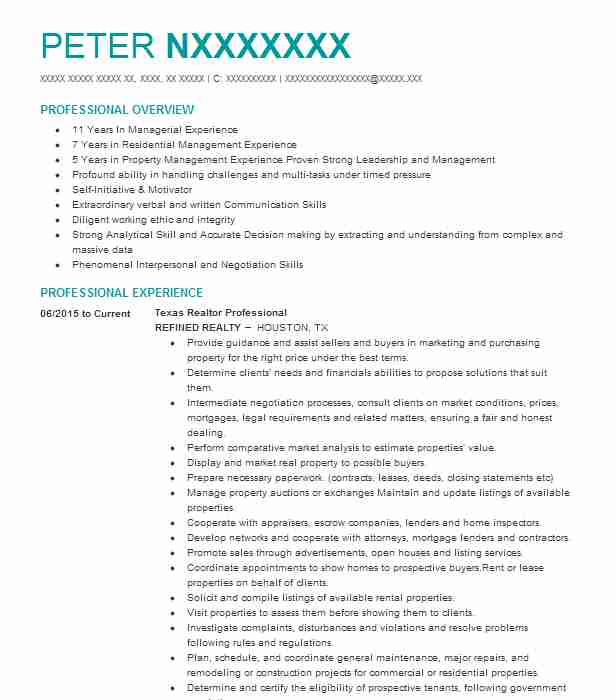
The requirements for obtaining an Illinois real estate licence are important if you want to get one. This article explains the requirements for obtaining a real estate licence, continuing education, as well as revocation. It also addresses some of the most common questions that are asked during an exam. Please contact the Board of Real Estate Examiners with any questions. The job of the board of examiners involves ensuring that the laws are fair, and that license holders are protected.
Article 15
Article 15 allows a licensed broker to act as a designated agent for a consumer. This relationship must be based upon mutual consent. General Assembly found that the common laws of agency have led to misinterpretations that have resulted, and has had negative effects on consumers. This Act codifies this relationship to stop misunderstandings in the future and to ensure stability in the realty market. This Article does NOT apply to sole proprietorships.
In Illinois, the sponsoring brokerage must also have an office or place for business. An identification sign must be displayed in the office's prominent location. Moreover, records required under this act must be kept in a secure location and accessible for inspection by the Department. These records must be in the original format and accessible via secure electronic access. This article applies to Illinois licensed broker. You can find more information about these requirements below.

How to get a real estate license
A license to be a New York real-estate agent requires that you are at least 18 years of age. The background check, state exams, and submission of fingerprints are required. You must have completed at least 75 hours of education before being licensed and you must pass the criminal background check. Additionally, you will need to complete a three-hour certificate about lead poisoning mitigation. Once you've received your license, you must complete at least 24 hours of continuing education every two years.
To qualify for a real estate license, you must complete prelicensing education. It depends on the state you are in, it can take anywhere between 40 to 200 hours. Even in states that have lax requirements, it is necessary to take courses on fair housing and business. You also need to work for a broker before you can apply for a license. Online education is not the only way to obtain a real estate license.
For continuing education, you will need to meet certain requirements
The Illinois Department of Financial and Professional Regulations requires that all real-estate agents and brokers must participate in certain continuing education (CE), each year, or for a regular time period. These requirements can be for pre-licensing CE or post licensing. Pre-licensing CE will be approved by the real estate commission. After licensure, the remaining credits must be earned.
The CE requirement requires that brokers and managing broker participate in at most four hours per year. These courses include real estate ethics. They should also cover agency, disclosures and fair housing. CE courses may be obtained through IDFPR's website or state agencies. Use the information provided by their website to locate CE courses near you or learn more about Illinois' requirements.

Revocation of a license to be a realtor
Revocation of a real estate license in the state of Illinois is a disciplinary action taken against a person for violating the laws governing real estate. There are many requirements to be reinstated if your license is not in use. Listed below are the most common reasons for revocation and how to appeal the decision. You can find out more information about your rights as an agent by reading the following.
Revocation of a real-estate license can occur for a variety of reasons, including failure to meet professional standards, misconduct, or misconduct. Naomi J. Sutton, a Real Estate Salesperson, lost her license after she was convicted. William J. Gerard Sr.'s case is another example. In his real estate documents, Gerard failed to disclose he was a licensed real estate agent.
FAQ
What should I look out for in a mortgage broker
People who aren't eligible for traditional mortgages can be helped by a mortgage broker. They compare deals from different lenders in order to find the best deal for their clients. This service is offered by some brokers at a charge. Others offer no cost services.
How can I get rid of termites & other pests?
Your home will eventually be destroyed by termites or other pests. They can cause serious damage and destruction to wood structures, like furniture or decks. This can be prevented by having a professional pest controller inspect your home.
Can I buy a house in my own money?
Yes! There are programs available that allow people who don't have large amounts of cash to purchase a home. These programs include government-backed mortgages (FHA), VA loans and USDA loans. Check out our website for additional information.
How can I tell if my house has value?
You may have an asking price too low because your home was not priced correctly. You may not get enough interest in the home if your asking price is lower than the market value. You can use our free Home Value Report to learn more about the current market conditions.
Statistics
- This seems to be a more popular trend as the U.S. Census Bureau reports the homeownership rate was around 65% last year. (fortunebuilders.com)
- Some experts hypothesize that rates will hit five percent by the second half of 2018, but there has been no official confirmation one way or the other. (fortunebuilders.com)
- Over the past year, mortgage rates have hovered between 3.9 and 4.5 percent—a less significant increase. (fortunebuilders.com)
- 10 years ago, homeownership was nearly 70%. (fortunebuilders.com)
- The FHA sets its desirable debt-to-income ratio at 43%. (fortunebuilders.com)
External Links
How To
How to manage a rental property
You can rent out your home to make extra cash, but you need to be careful. We'll show you what to consider when deciding whether to rent your home and give you tips on managing a rental property.
This is the place to start if you are thinking about renting out your home.
-
What factors should I first consider? You need to assess your finances before renting out your home. If you have outstanding debts like credit card bills or mortgage payment, you may find it difficult to pay someone else to stay in your home while that you're gone. Also, you should review your budget to see if there is enough money to pay your monthly expenses (rent and utilities, insurance, etc. This might be a waste of money.
-
How much does it cost for me to rent my house? There are many factors that influence the price you might charge for renting out your home. These factors include the location, size and condition of your home, as well as season. Prices vary depending on where you live so it's important that you don't expect the same rates everywhere. Rightmove has found that the average rent price for a London one-bedroom apartment is PS1,400 per mo. This would translate into a total of PS2,800 per calendar year if you rented your entire home. This is a good amount, but you might make significantly less if you let only a portion of your home.
-
Is it worth it? There are always risks when you do something new. However, it can bring in additional income. You need to be clear about what you're signing before you do anything. It's not enough to be able to spend more time with your loved ones. You'll need to manage maintenance costs, repair and clean up the house. You should make sure that you have thoroughly considered all aspects before you sign on!
-
Are there any advantages? There are benefits to renting your home. Renting out your home can be used for many reasons. You could pay off your debts, save money for the future, take a vacation, or just enjoy a break from everyday life. It's more fun than working every day, regardless of what you choose. If you plan ahead, rent could be your full-time job.
-
How do I find tenants? Once you decide that you want to rent out your property, it is important to properly market it. Online listing sites such as Rightmove, Zoopla, and Zoopla are good options. Once potential tenants contact you, you'll need to arrange an interview. This will help you evaluate their suitability as well as ensure that they are financially secure enough to live in your home.
-
How can I make sure I'm covered? You should make sure your home is fully insured against theft, fire, and damage. In order to protect your home, you will need to either insure it through your landlord or directly with an insured. Your landlord will typically require you to add them in as additional insured. This covers damages to your property that occur while you aren't there. However, this doesn't apply if you're living abroad or if your landlord isn't registered with UK insurers. In such cases you will need a registration with an international insurance.
-
If you work outside of your home, it might seem like you don't have enough money to spend hours looking for tenants. However, it is important that you advertise your property in the best way possible. Make sure you have a professional looking website. Also, make sure to post your ads online. A complete application form will be required and references must be provided. While some prefer to do all the work themselves, others hire professionals who can handle most of it. In either case, be prepared to answer any questions that may arise during interviews.
-
What do I do when I find my tenant. If you have a current lease in place you'll need inform your tenant about changes, such moving dates. Otherwise, you can negotiate the length of stay, deposit, and other details. Remember that even though you will be paid at the end of your tenancy, you still have to pay utilities.
-
How do I collect the rent? When the time comes for you to collect the rent you need to make sure that your tenant has been paying their rent. You will need to remind your tenant of their obligations if they don't pay. You can deduct any outstanding payments from future rents before sending them a final bill. If you're struggling to get hold of your tenant, you can always call the police. The police won't ordinarily evict unless there's been breach of contract. If necessary, they may issue a warrant.
-
How can I avoid problems? Renting out your house can make you a lot of money, but it's also important to stay safe. You should install smoke alarms and carbon Monoxide detectors. Security cameras are also a good idea. Check with your neighbors to make sure that you are allowed to leave your property open at night. Also ensure that you have sufficient insurance. Do not let strangers in your home, even though they may be moving in next to you.